Recast our security agenda
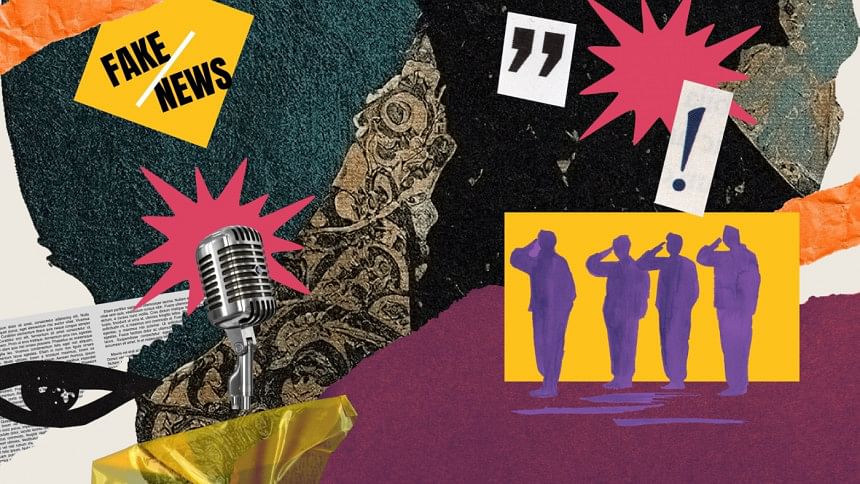
It is difficult to recall a time in our brief history when the nation's security has been in greater peril than it is now. It is also difficult to recall if the country has been subjected to such multi-faceted threats by the deeds and misdeeds of an administration.
It is, therefore, essential that the current regime makes the country's security issue the top priority and addresses our security concerns with urgency. Risks and threats have not subsided. Newer plans are being hatched on foreign soil to negate the results of the people's victory over an autocrat.
We must reflect on why we faced a situation that could have been more cataclysmic than what it turned out to be, especially given the limbo the country was in for nearly 72 hours, with a very distinct possibility of external aggression under the pretext of humanitarian intervention or invoking the principle of pre-emption—i.e. addressing a security threat to the aggressor country before it actualised—following the abominable example set by George Bush Jr and his Western cohorts in Iraq in 2001.
Looking back at key moments in our history, we performed admirably as a nation in 1971, but the fruits were frittered away by callow political leadership and greed. The events of 1975 were perhaps the consequences of the regime's performance of the previous four years. While the change did pose the country with the prospects of external aggression, this was stymied by the policies undertaken by the succeeding regime. The nine years of military and pseudo-democratic rule was another inflection point, so was 1/11. However, none of these events caused the country such great harm, and subjected it to such great threats, in all aspects of its life, to such great extent, as the time from 2009 to August 5, 2024, when the Awami League remained in power. The country's existence was put at risk because of the policies, internal and external, of the AL government.
We must seriously reflect on why the student uprisings, aptly called the "Monsoon Revolution" by a security analyst, occurred. Otherwise, we risk the repetition of the event with the prospect of irreparable harm to the country's interest, as has happened in this case.
A new agenda must focus on assessing the risks we face, identifying the most damaged sectors, and devising measures to not only mitigate the harm but also facilitate recovery and ensure such events are not repeated. The response must be both in the short as well as long-term, external as well as internal.
But before delving into the details of what we feel the agenda should cover or the threats it should address, I would like to suggest some immediate actions and ask a few questions which have occupied our thoughts since the last 30 days, since those are linked deeply with the security of our state.
First, the administration should launch a diplomatic and media counteroffensive to offset the hostile propaganda, invectives, false narratives and scurrilous attacks against Bangladesh launched by the Indian media, particularly that segment of it that has brazenly supported Modi's Hindutva policy, and supported its anti-minority (read anti-Muslim) campaign.
The Indian media's smear campaign began immediately after the hasty departure of Hasina. A dedicated unit should be established for this purpose, as repeated lies can create what psychologists call the "illusion of truth"—a tactic perfected by Goebbels and being applied, though unsuccessfully, by the Indian propaganda machinery against Bangladesh.
In particular, the administration must counter the "minority' card that India has always played when it found a non-pliant regime in charge in Bangladesh. They played the same game again post-August 5, but failed miserably. Nevertheless, the media campaign has gone on unabated—possibly choreographed by their intelligence agencies, since the narratives being dished out to the Indian public is nauseatingly similar. If the world were to believe the Indian propagandists and media and, in some cases, what ill-informed retired military security analysts are spewing out, one would think that Bangladesh has been taken over by extremists and the country is heading toward Talibanisation.
It is our duty to warn the government that the former autocrat is actively conspiring from her safe abode in New Delhi to destabilise Bangladesh. Analysts suggest that Indian intelligence agencies will pursue in the short term a strategy to drive a wedge between Bangladesh's interim government and various political parties by playing up pro-American sentiments and by falsely linking the student movement to Hizb ut-Tahrir.
Another concerning issue is a report by an online news portal suggesting the physical presence of foreign personnel, trained by outside intelligence agencies, to suppress the student movement on our soil. Given some of the video footage of recent police actions against students, this report cannot be dismissed. Many more questions would follow if there were a shade of truth in it—foremost of which would be the culpability of those who allowed it—since that would be an act of treason and sedition.
It would also be pertinent to ask the disposal and whereabouts of more than 600 former AL politicians, bureaucrats and beneficiaries of the past regime who sought sanctuaries in various cantonments. Out of 17 crore Bangladeshis, why did only these 600 have to seek military protection, if they were not suffering from a burden of guilt? We understand that several of these people have found their way out of the country, among them many were directly responsible for the killing of nearly 1,000 people, mostly young men. How has this been allowed to happen?
A new security agenda must begin with the prosecution of those responsible for these killings. However, justice will not be served if those directly responsible are still at large. Thus, those who have allowed the killers to escape cannot risk being seen as complicit in the killings.
Brig Gen Shahedul Anam Khan, ndc, psc (retd) is a former associate editor of The Daily Star.
Views expressed in this article are the authors' own.
Follow The Daily Star Opinion on Facebook for the latest opinions, commentaries and analyses by experts and professionals. To contribute your article or letter to The Daily Star Opinion, see our guidelines for submission.

 For all latest news, follow The Daily Star's Google News channel.
For all latest news, follow The Daily Star's Google News channel. 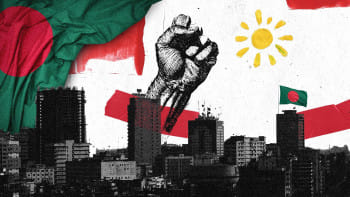
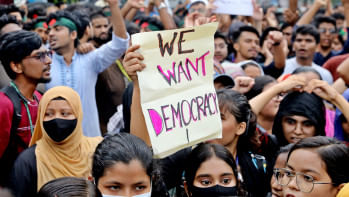
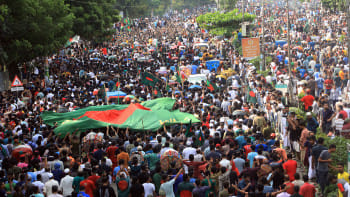


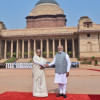
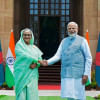





Comments